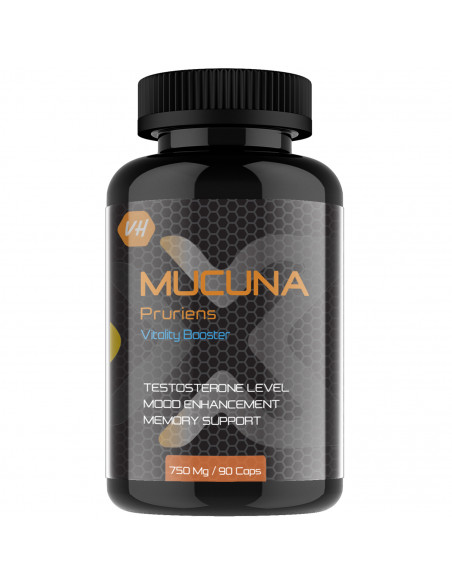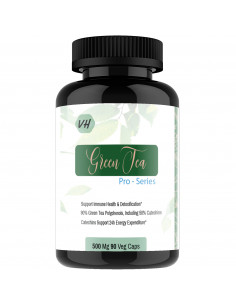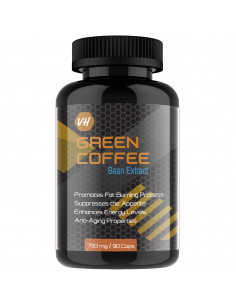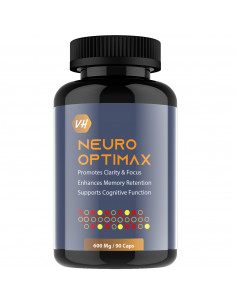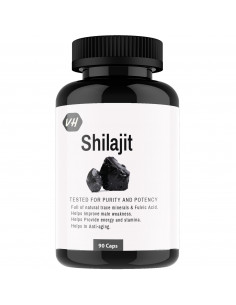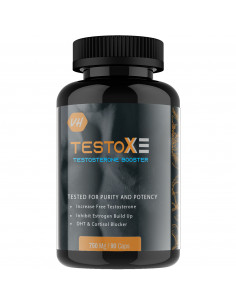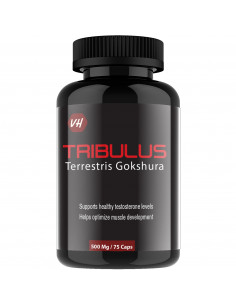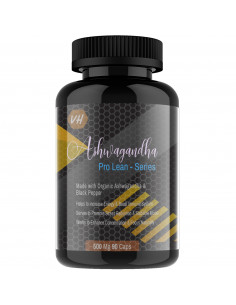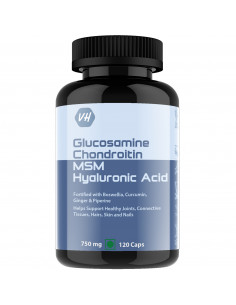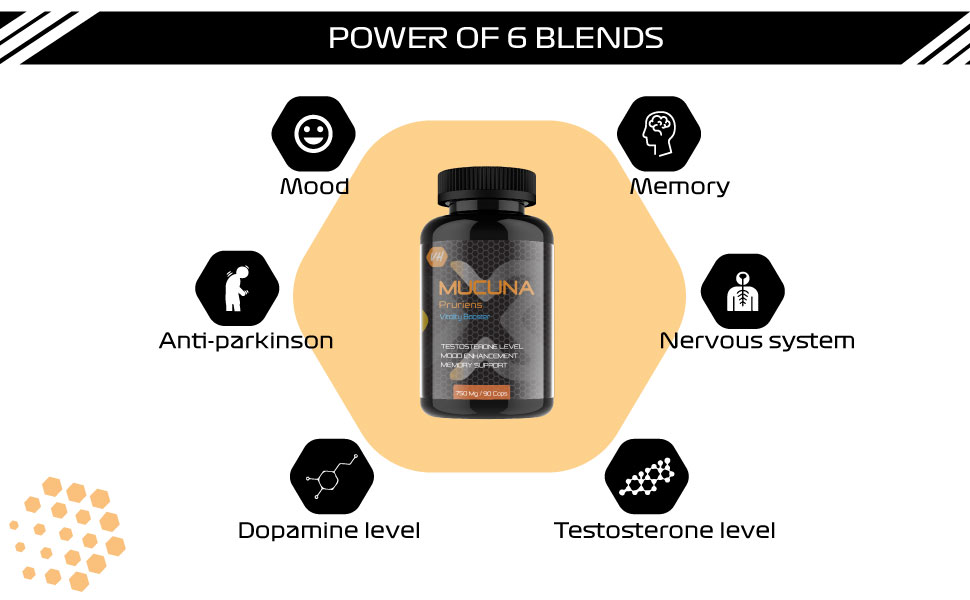
VitaminHaat Mucuna 750mg 90 Capsules.
VitaminHaat is a premium scientifically researched ingredients brand that can be trusted for its quality, being a brand of Varion Food Sciences Pvt. Ltd. Quality is the cornerstone & Hallmark of our company's policy. VitaminHaat provides PREMIUM QUALITY Products to support optimal daily health through scientifically researched products with customer satisfaction.
ANTIOXIDANTS –
Mucuna Pruriens Extract is a Rich Source of Antioxidants,Easily Dissolvable. Antioxidants May Help Protect your Body from Free Radical Damage. Promotes Relaxation and Recovery, Naturally Supports Feeling and Benefits Nervous System.
PROMOTE NATURAL BALANCE & POSTURE-
Mucuna Pruriens has a Profoundly Balancing and Restorative Effect on the Entire Nervous System. Mucuna Pruriens Can Minimize the Effects of Stress While Supporting the Body’s Natural Physical Balance and Good Posture.
BRAIN HEALTH –
Mucuna Pruriens Extract Contains L-Dopa, which Converts to Dopamine in the Brain. Dopamine Is a Neurotransmitter that Helps Regulate Movement and Emotional Responses. It Also Contributes to Learning, Attention,Regulation And Sleep quality.
Mucana Pruriens is a popular Indian Ayurveda medicinal plant, which has long been used in traditional Ayurvedic Indian medicine, for conditions like parkinsonism (Sathiyanarayanan et al., 2007). Mucana Pruriens Extract is basically Pre Hormone booster which helps in mood enhancement. Dopamine helps in regulating body movements.
This herb is widely used in Ayurveda, which is our ancient traditional medical science that has been practiced in India since the Vedic times (1500–1000 BC). Mucana Pruriens contains L-dopamine as one of its main constituents. The beans and its extracts have also been employed as a powerful aphrodisiac in Ayurveda and have been used to treat nervous disorders and arthritis. Mucana Pruriens supplement improves Pre Hormone levels where as Dopamine support in nervous system disorder.
Mucana pruriens have traditionally been used as a nervine tonic, and as an aphrodisiac for male virility. The pods have anthelmintic properties, and the seeds are anti-inflammatory. Powdered seeds possess anti-parkinsonism properties, possible due to the presence of L-dopamine in this Herb.

